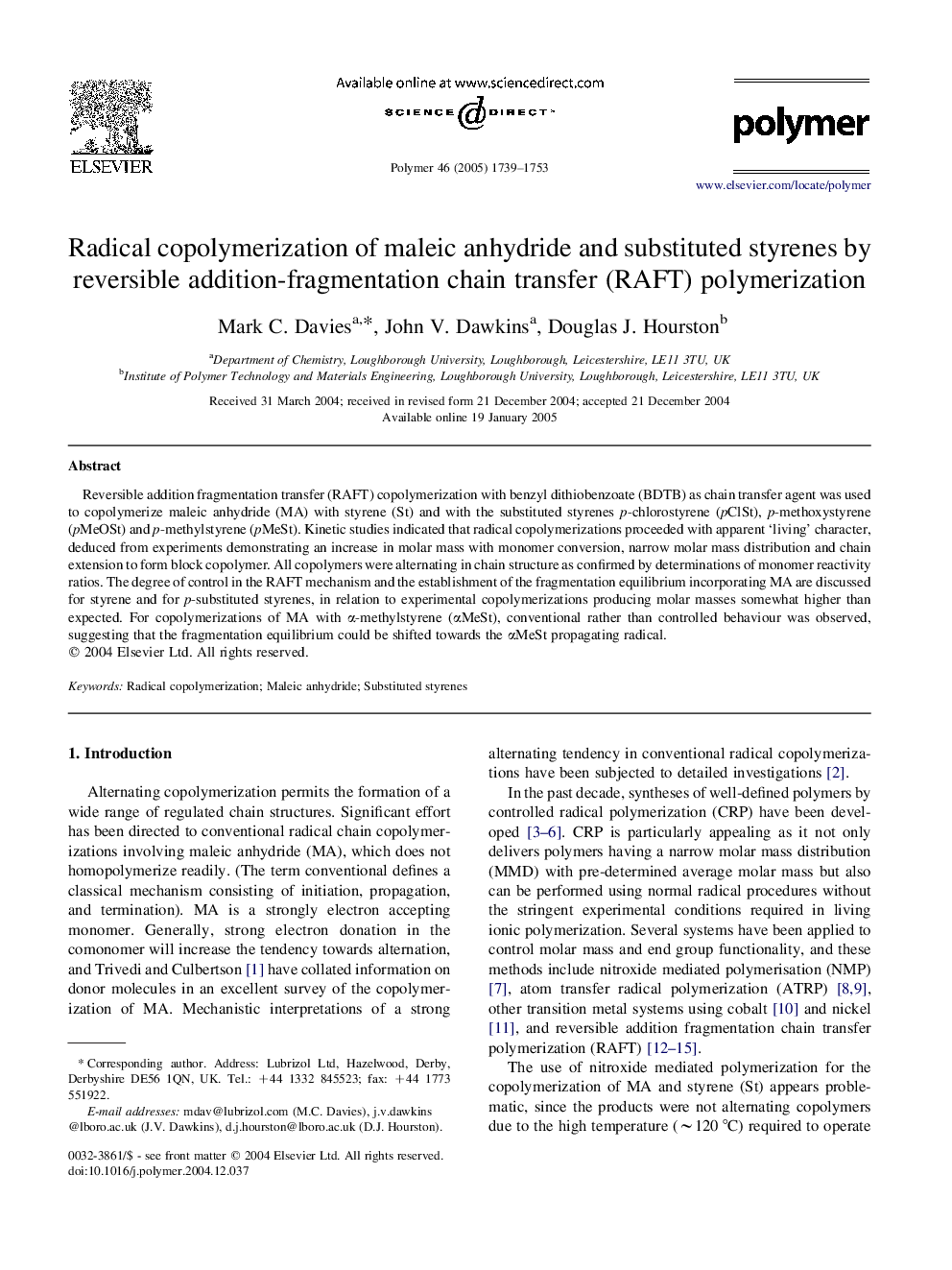| Article ID | Journal | Published Year | Pages | File Type |
|---|---|---|---|---|
| 5192024 | Polymer | 2005 | 15 Pages |
Abstract
Reversible addition fragmentation transfer (RAFT) copolymerization with benzyl dithiobenzoate (BDTB) as chain transfer agent was used to copolymerize maleic anhydride (MA) with styrene (St) and with the substituted styrenes p-chlorostyrene (pClSt), p-methoxystyrene (pMeOSt) and p-methylstyrene (pMeSt). Kinetic studies indicated that radical copolymerizations proceeded with apparent 'living' character, deduced from experiments demonstrating an increase in molar mass with monomer conversion, narrow molar mass distribution and chain extension to form block copolymer. All copolymers were alternating in chain structure as confirmed by determinations of monomer reactivity ratios. The degree of control in the RAFT mechanism and the establishment of the fragmentation equilibrium incorporating MA are discussed for styrene and for p-substituted styrenes, in relation to experimental copolymerizations producing molar masses somewhat higher than expected. For copolymerizations of MA with α-methylstyrene (αMeSt), conventional rather than controlled behaviour was observed, suggesting that the fragmentation equilibrium could be shifted towards the αMeSt propagating radical.
Related Topics
Physical Sciences and Engineering
Chemistry
Organic Chemistry
Authors
Mark C. Davies, John V. Dawkins, Douglas J. Hourston,
